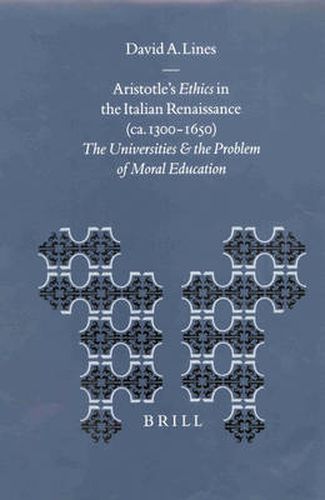Readings Newsletter
Become a Readings Member to make your shopping experience even easier.
Sign in or sign up for free!
You’re not far away from qualifying for FREE standard shipping within Australia
You’ve qualified for FREE standard shipping within Australia
The cart is loading…






A study of the teaching of Aristotle’s Nicomachean Ethics (the standard textbook for moral philosophy) in the universities of Renaissance Italy. Special attention is given to how university commentaries on the Ethics reflect developments in educational theory and practice and in humanist Aristotelianism. The first part of the text (on the Nachleben of the Ethics in the Latin West to 1650 and the work’s place in the universities) is followed by a discussion of Italian interpretations of the Ethics up to 1500 (Part Two) and then from 1500 to 1650 (Part Three), specifically in Florence, Padua, Bologna and Rome (including the Collegio Romano). Largely based on archival and unpublished sources, this study aims to provide striking evidence for the continuing vitality of Renaissance Aristotelianism and its interaction with humanism.
$9.00 standard shipping within Australia
FREE standard shipping within Australia for orders over $100.00
Express & International shipping calculated at checkout
A study of the teaching of Aristotle’s Nicomachean Ethics (the standard textbook for moral philosophy) in the universities of Renaissance Italy. Special attention is given to how university commentaries on the Ethics reflect developments in educational theory and practice and in humanist Aristotelianism. The first part of the text (on the Nachleben of the Ethics in the Latin West to 1650 and the work’s place in the universities) is followed by a discussion of Italian interpretations of the Ethics up to 1500 (Part Two) and then from 1500 to 1650 (Part Three), specifically in Florence, Padua, Bologna and Rome (including the Collegio Romano). Largely based on archival and unpublished sources, this study aims to provide striking evidence for the continuing vitality of Renaissance Aristotelianism and its interaction with humanism.